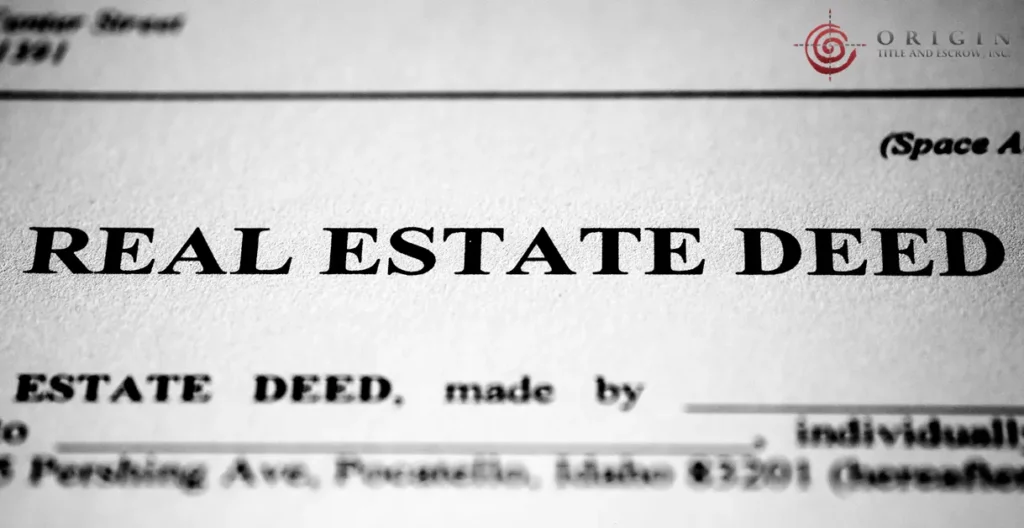The Closing Process
Getting Real Estate Documents Signed Overseas
It is often difficult and expensive, but closing documents can be signed outside of the United States if necessary.
The seller, buyer, or borrower can usually sign at a United States Embassy. If the US Embassy is not an option, the documents will need to be executed with a witness, notary, and then an Apostille.
An Apostille is a certificate that authenticates the signature and title of a public official on a document for use in another country. The country must be part of the Hague Convention for the Apostille to be valid and accepted. If the country is NOT part of the Hague convention, then the U.S. Embassy is the only option.
Each country has their own process for getting an Apostille for a document. In many countries, this process can be handled by private companies. Signing documents in the United States for use in other countries would also require an Apostille from the Secretary of State’s office in which the document was signed.
It is best to close a purchase or refinance in the United States. The Apostille can be expensive, and the U.S. Embassy may have a long waiting list to get in to sign documents. In both situations, it can take considerable time to get the original signed documents back to the closing attorney in the United States.
There are times when it is necessary to have documents signed overseas. We accommodate signings overseas whenever it is possible.
John C. Bennett is a real estate closing attorney and owner of Origin Title and Escrow, Inc..
Since 2003, Origin Title has handled real estate transactions – purchases, refinances, reverse
mortgages – quickly and professionally. There will be no surprises, nothing misunderstood. Title
searches are thorough and well-reasoned, to avoid unpleasant surprises later down the road.
Calculate your closing costs in Georgia or Florida using our calculator or contact Origin Title using the form provided.
Double Closing Risks
We sometimes get asked if we do ‘double closings.’ This refers to the practice of purchasing a
property and then selling it the same day for a profit. This type of transaction poses risks for the
closing attorney as well as the parties involved.
Double closings are not illegal, but they pose many problems. Usually, the first closing is for a
lower purchase price than the second. The difference in price is the profit for the first buyer.
Each transaction must stand on its own. The funds from the second transaction may not be
used for the first purchase.
The difference in price on the same day is pretty good evidence that someone either sold for
much less than what the property was worth, or purchased the property for more than what it
was worth or what it would appraise for.
Because the seller is selling for a lower price in the first transaction, they may feel like they were
the victim of a scam. The second buyer may also feel they were tricked in the transaction. All
parties need to know about both transactions. Without this transparency, the risk of a
lawsuit after closing increases.
Another consideration is that most lenders will not approve a loan to purchase property pursuant
to a double closing.
Also, FHA requires the seller to be on the title for 90 days prior to closing. For a double closing
to work, both transactions would need to be cash without any traditional loans.
Often, a proposed purchaser is simply getting a property under contract to market to other potential buyers. In this scenario, the first buyer is acting as a “Broker” per OCGA 43-40-30 (a) without a license.
When called by new real estate investors, our standard answer is that we do not do double
closings for these reasons.
There are limited circumstances where we could do a double closing, but not very often.
John C. Bennett is a real estate closing attorney and owner of Origin Title and Escrow, Inc..
Since 2003, Origin Title has handled real estate transactions – purchases, refinances, reverse
mortgages – quickly and professionally. There will be no surprises, nothing misunderstood. Title
searches are thorough and well-reasoned, to avoid unpleasant surprises later down the road.
Calculate your closing costs in Georgia or Florida using our calculator or contact Origin Title using the form provided.
Legal Property Descriptions on a Georgia Deed May Vary
All deeds require an accurate description of the real property being conveyed. Street addresses and Tax Parcel numbers can change, so they are not sufficient to describe real property on a deed.
Each state may describe real estate a little differently. In Georgia, we have two main types of legal descriptions. The easy one is often called a ‘short form’ legal description, which simply lists the Land Lot, District, lot number, and a recorded plat map for a full description of the property. Most residential properties in subdivisions have a short legal description.
A second type of description is a ‘metes and bounds’ description of the property. The metes and bounds description will still include the Land Lot and District, but then go on to write out the description of the property instead of referring to a recorded plat.
The ‘mete’” part is the description of the boundary lines, and often requires using math and geometry. The boundary lines will be described by stating the direction and distance of a line or curve. For example, a line of North 89 degrees 1 minute 1 second East a distance of 50 feet, would describe a 50-foot line that is almost directly due East. Curves can get more complicated because they require the radius, chord, arc, direction, and distance of the curved line.
The ‘bounds’ part is a monument or something that exists to physically show the boundary of the property, usually a road. Older legal descriptions use stones and trees as markers. Using trees and stones creates a lot of problems when trying to decipher a property line because trees are not permanent and stones can be removed.
Rural counties in Georgia will often refer to the ‘GMD’, which are general militia districts. The counties in Georgia were initially divided by these militia districts, with a captain for each district. A property’s GMD may still be used in certain legal descriptions today.
A deed will be invalid without a valid legal description. The most common mistake on a short-form description is listing the wrong lot number or wrong plat book reference. With metes and bounds descriptions, there are a lot more chances to make a mistake.
John C. Bennett is a real estate closing attorney and owner of Origin Title and Escrow, Inc.. Since 2003, Origin Title has handled real estate transactions – purchases, refinances, reverse mortgages – quickly and professionally. There will be no surprises, nothing misunderstood. Title searches are thorough and well-reasoned, to avoid unpleasant surprises later down the road. Calculate your closing costs in Georgia or Florida using our calculator or contact Origin Title using this form.
New Recording Requirements for Georgia Security Deeds
Georgia House Bill 974 (updating OCGA §44-14-63) passed and will go into effect July 1, 2023. Lenders may need to adjust their closing documents to make sure all the required information is listed on the first page of the security deed. (Security deeds are commonly referred to as mortgages). Sometimes the loan amount and the maturity date are in the body of the security deed, and difficult to find. This amended statute requires the following information to be listed on the first page of the document to be recorded:
- The date of the document
- The names of the signatories of the document
- The grantee’s mailing address
- Map and parcel ID, if applicable
- The original loan amount or the amount of any outstanding principal and additional advance pursuant to a loan modification
- The initial maturity date or dates for such debt
- The amount, if any, of the intangible recording tax imposed on such deed to secure debt
- The amount, if any, of the intangible recording tax imposed for an additional advance pursuant to a security deed modification agreement of other additional advance secured by a security deed and
- If no intangible tax is imposed, a citation to the authority providing for an exemption of such tax.
Clerks will reject the Security Deed if it does not include this information.
John C. Bennett is a real estate closing attorney and owner of Origin Title and Escrow, Inc.. Since 2003, Origin Title has handled real estate transactions – purchases, refinances, reverse mortgages – quickly and professionally. There will be no surprises, nothing misunderstood. Title searches are thorough and well-reasoned, to avoid unpleasant surprises later down the road. Calculate your closing costs in Georgia or Florida using our calculator or contact Origin Title using this form.
Townhome vs Condominium
How do you decide if a property is a condominium or a townhome? A property is not a condominium unless the developer or owner has filed a “Declaration of Condominium” in the real estate records. The condominium will also need plans recorded identifying each unit.
Townhomes will normally have a Declaration of Restrictions, Conditions, and Covenants for the development.
While both the condominium and townhome development will have rules and restrictions for owners, the condominium will also have floor plans of the units recorded in the real estate records.
Both will identify the property and list the rules for the development, architecture, and will often include parking spaces or anything else that is determined by the Home Owners Association (HOA) or Condominium Association. Both will also have a Common Area that is shared by all the owners of the units or townhomes.
There are a wide variety of rules for both, and it is a good idea to read through the covenants and declarations before purchasing either one. Many condominiums will restrict the number of rentals allowed in the building, and some townhome neighborhoods are also adopting restrictions on rentals.
The loan process is different for condominiums, especially if the buyer is applying for an FHA insured loan. For an FHA loan, it really matters how many owners in the building are in arrears on their condominium dues. If too many people are delinquent in their payments, the unit or building may not qualify for an FHA loan. The condominium must also have a certain percentage of owner-occupied units in the building to be approved by FHA.
FHA requirements for condominiums were updated in September, 2022 to clarify and add structural inspections, insurance, and other requirements to qualify for an FHA loan.
A person buying a townhome will have fee-simple ownership of the house and the land it sits on. A person buying a condominium will only own their unit and none of the land the building sits on. Lenders treat a townhouse just like any other single-family residence, while a condominium may require some extra work and review to be approved for a loan, especially an FHA loan.
Buyers should know up front what type of property it is before making any offer.
John C. Bennett is a real estate closing attorney and owner of Origin Title and Escrow, Inc.. Since 2003, Origin Title has handled real estate transactions – purchases, refinances, reverse mortgages – quickly and professionally. There will be no surprises, nothing misunderstood. Title searches are thorough and well-reasoned, to avoid unpleasant surprises later down the road. Calculate your closing costs in Georgia or Florida using our calculator or contact Origin Title using this form.
The Days of Closing Using Zoom Are Over
During the state of emergency under pandemic precautions, we could notarize and witness someone signing documents over video. The signor would still have to send the original documents back for us to sign as the witness and notary, though. This worked well.
For the past 2 years, there was proposed legislation to allow for Remote Online Notaries, or RON. The statute was tabled in 2021 and voted down in 2022.
Real estate attorneys are perceived as being against RON, but that’s not completely true. Real estate attorneys want to make sure there is accountability in signing documents and handling a closing.
At Origin Title, every closing document is signed and notarized properly, and there is an attorney present at the closing. Homeowners, loan officers, and real estate agents who close with us will always be able to find us.
John C. Bennett is a real estate closing attorney and owner of Origin Title and Escrow, Inc.. Since 2003, Origin Title has handled real estate transactions – purchases, refinances, reverse mortgages – quickly and professionally. There will be no surprises, nothing misunderstood. Title searches are thorough and well-reasoned, to avoid unpleasant surprises later down the road. Calculate your closing costs in Georgia or Florida using our calculator or contact Origin Title using this form.
Attorney States vs. Title Company States
Real estate closings differ from state to state. In “Attorney States”, a licensed attorney must be present at and have control over the closing. This includes reviewing the title search, preparing affidavits, receiving and disbursing all money. Several east coast states are attorney states: Georgia, South Carolina and North Carolina.
Some states, such as Florida, are “Title Company States” that do not require an attorney to close loans or purchases as long as the closing includes title insurance. This rule is unique because title companies can only prepare closing documents when insuring titles. So, in this case, even in Florida, a Florida attorney would be needed if there is an all cash purchase with no title insurance.
Origin Title & Escrow can close loans and purchases for Florida properties as long as title insurance is involved. An “attorney state” requires an attorney licensed in that state to perform closings. John C. Bennet is a licensed attorney in Georgia and a licensed title insurance agent in Florida. Origin Title can perform closings in both Georgia and in Florida.
Closing Terminology
When someone calls to start an escrow, we know where they’re calling from…California.
Each state has different terminology when it comes to closings. In California, an escrow is opened where the title company holds all the documents and money until the disbursement date. The parties may sign the documents days before the funds are actually sent out. While the escrow process in California is different, it is not unusual for each state to have it’s own customs and processes for a closing. Some states are ‘dry’, where everything is signed one day and funded on another day. Some states are ‘wet’ where the signing and funding occur on the same day.
Buyers from California are surprised that they must have their money wired into an escrow account on or before the closing date because, in Georgia, funds are dispersed the day of closing.
Choose a closing attorney who understands the legal requirements to close a real estate purchase and who can explain it to the other parties involved in the transaction.
Virtual Meetings
Who likes going to office meetings? Frequent meeting attendees hope there’s a spread of food and drinks; if there’s not, then they’d prefer the conversation be conducted via email.
Real estate brokerages are shifting to virtual office spaces where there are no in-person meetings to attend. Some brokerages even have avatars for their agents to meet with clients or attend meetings.
Agents with virtual offices need a closing attorney with their own conference room to complete their closings and that’s where Origin Title & Escrow comes in. And yes, we will have a basket of candy on the conference table.
Preventing Title Issues on Closing Day
Some surprises are good. When it comes to closing on a home, a surprise is rarely a good thing.
Many closing attorneys use big title companies for their title searches and these companies can take about three weeks to receive title results. When sellers learn about a title issue the day before closing, it’s because the closing attorney received the title search results at the last minute.
You can avoid closing problems and delays by bringing on Origin Title & Escrow as the closing attorney. We use two companies that we’ve worked with for over 18 years. We typically get title searches back within a week, so that gives an extra two weeks to clear up any old title issues and get the home CLOSED!










